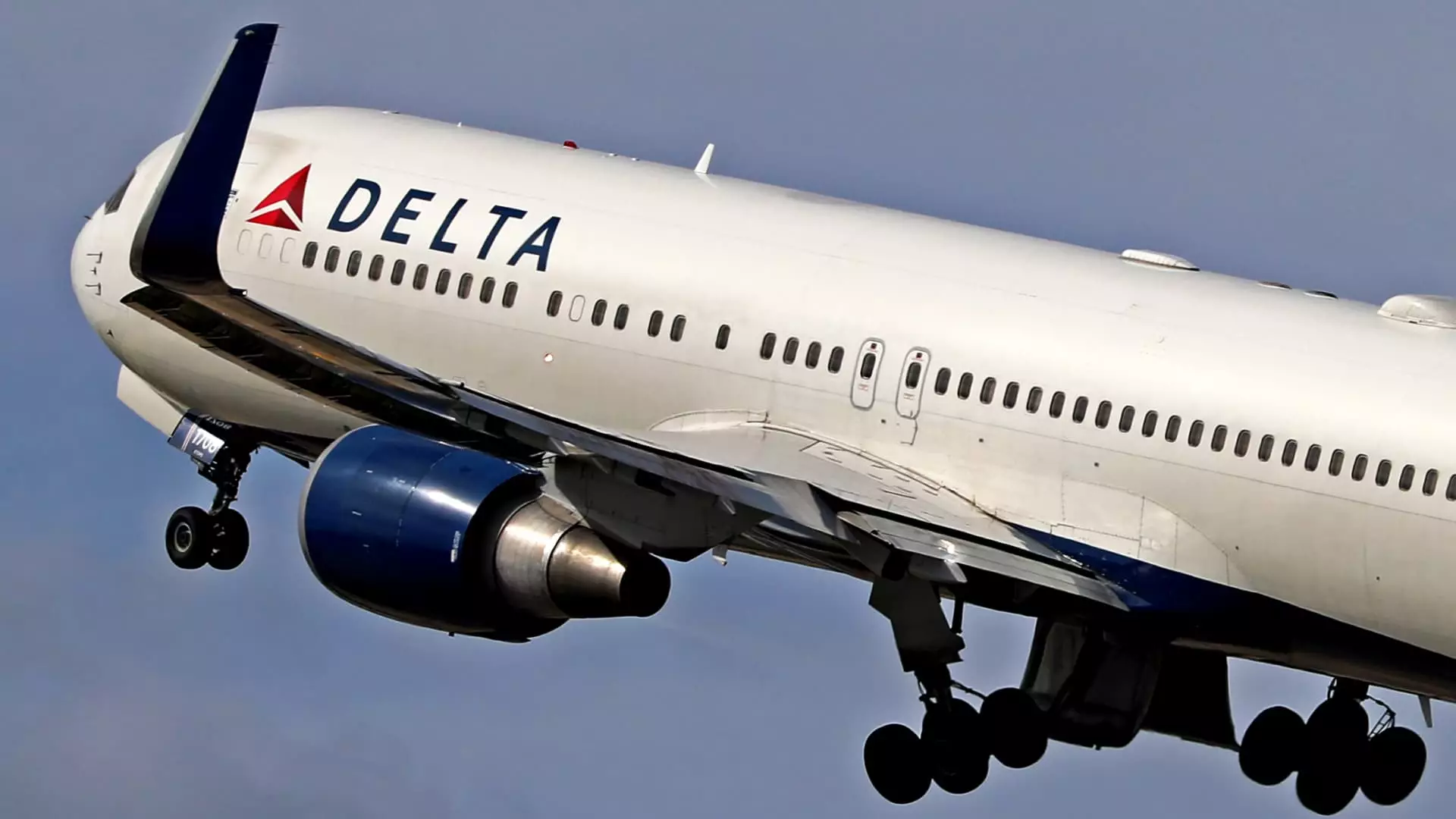Airline stocks have been on a downward trajectory recently, with investors scrambling to decipher the underlying causes of this unsettling trend. At the core of the issue lies the growing anxiety surrounding economic instability. Consumer confidence, a fundamental driver of spending decisions, is faltering. People are tightening their belts in anticipation of potential downturns, and what better indicator of societal mood than travel bookings? When consumers feel uncertain about their financial future, discretionary travel is often the first to get the axe. The drop in travel demand has been palpable, leading to a fundamental reevaluation of the airline sector’s prospects.
Sinking Shares: Delta Air Lines Takes the Hit
The news surrounding Delta Air Lines underscores the bleak outlook for the industry. Once celebrated as the most profitable airline in the United States, Delta has now seen its stock price tumble over 3% after Jefferies downgraded its rating. This drastic shift in sentiment is not merely a coincidence; the airline has cut its first-quarter guidance and is anticipated to further reduce its 2025 forecasts. The irony lies in Delta’s reported growth in higher-end cabins and credit card partnerships. While the company’s focus on premium services seems like a solid strategy on the surface, it may reflect desperation to attract less price-sensitive customers amid a broader economic malaise.
The Broader Implications for the Industry
Delta is not alone in this turbulence. American Airlines, Southwest Airlines, and Air Canada are also feeling the brunt of these adverse trends, with Jefferies slashing their ratings as well. This synchronous fall raises larger questions about the viability of the airline industry as a whole. Over-reliance on domestic travel revenue has proven to be a double-edged sword, particularly as travel spending has seen a 7.2% drop in the first quarter. A resurgence in demand for international travelers remains uncertain, making these carriers particularly vulnerable to shifts in consumer sentiment and global economic conditions.
The Tariff Tension and Its Effects
Adding to the precarious state of airline stocks is the looming threat of new tariffs. Trade disputes create further uncertainty, particularly for airlines that rely on cross-border travel. With uncertainties hanging over trade practices, potential retaliations could lead to increased operational costs—a scenario that no airline can afford amidst dwindling consumer interest. It’s apparent that the airlines are walking a tightrope, balancing their efforts to maintain profitability against a backdrop of lower demand and impending tariffs.
A Message for the Future
As we navigate through this turbulent period in the airline industry, it is fair to speculate about the future of travel. The current dynamics beckon stakeholders to reassess strategies centering around customer engagement and operational efficiency. While economic pressures may seem daunting, they also provide a unique opportunity for innovation, urging airlines to pivot toward more resilient business models.
In a world that can feel increasingly unsettled, the ability to adapt could very well determine which airlines take flight and which ones find themselves grounded in uncertainty. The future could be set for an evolution in air travel if only the players in this space dare to rise to the challenge rather than succumb to fear.

